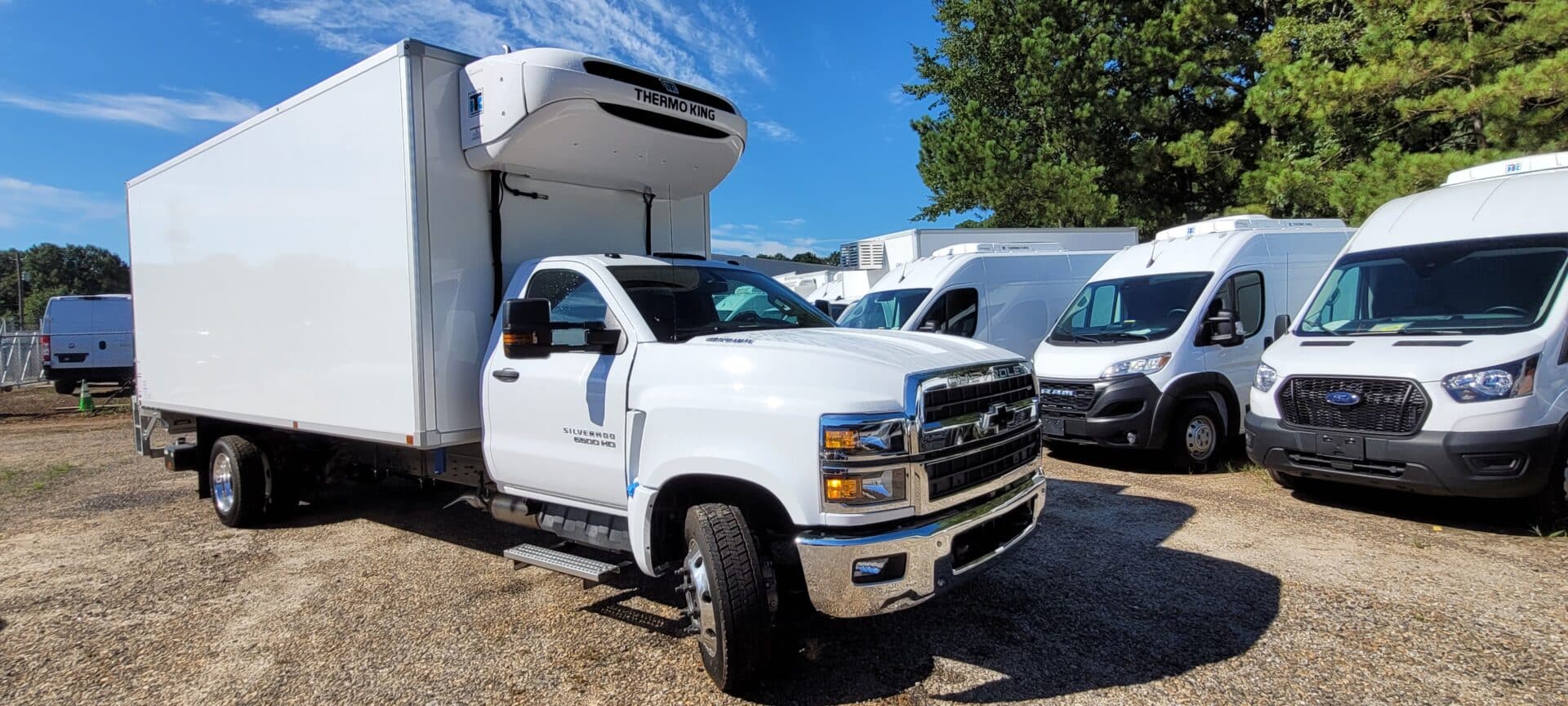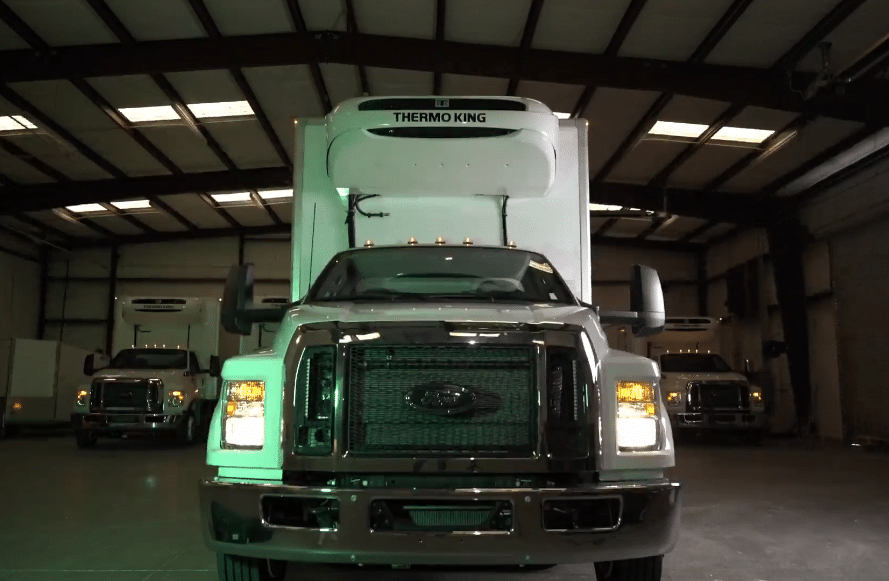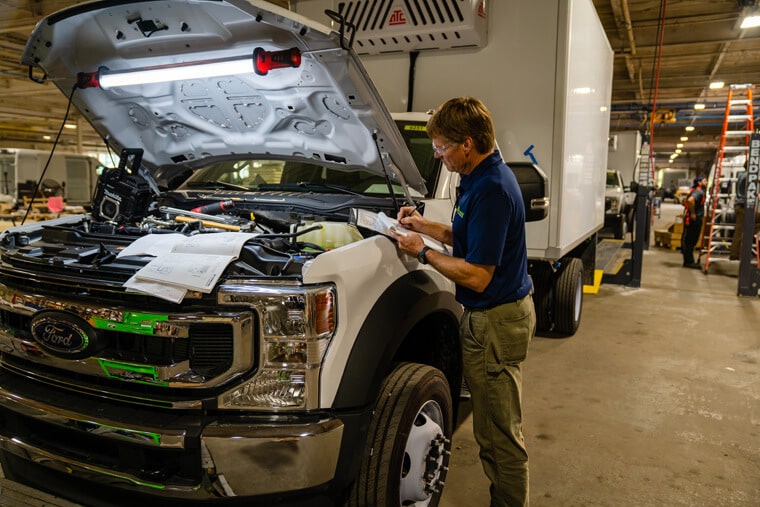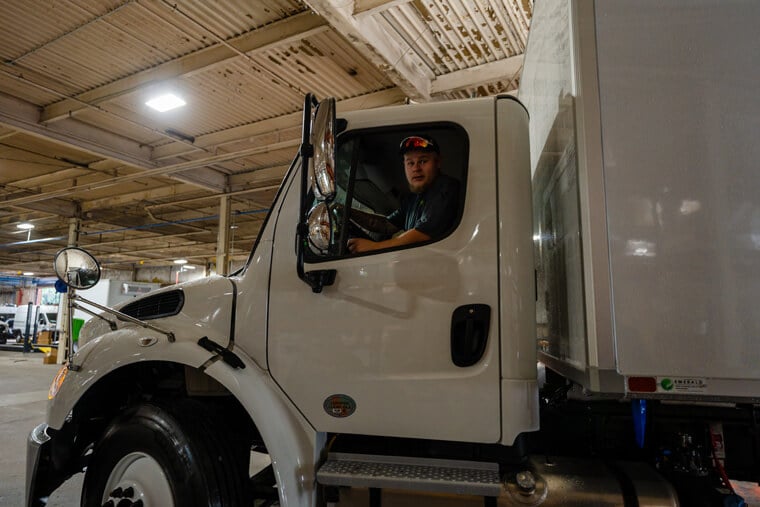
Refrigerated vs. Freezer Trucks
Todd Cawley | October 10th, 2023
Understanding the nuances of different vehicle types is crucial in temperature-controlled transportation. Two main types in this field are refrigerated and freezer trucks. So, what sets them apart?
The fundamental difference between refrigerated trucks and freezers is the temperature they can maintain. Refrigerated trucks, also known as “reefer trucks,” are designed to keep perishable goods at a cool temperature, typically between 0°C to 4°C (32°F to 39.2°F). This makes them ideal for transporting fresh fruits and vegetables, dairy products, or pharmaceuticals that must be kept cool but not frozen.
Conversely, freezer trucks maintain much lower temperatures, often as low as -18°C (0°F). These vehicles are designed to transport goods that need to be kept frozen, such as ice cream, frozen foods, or certain medical supplies.
Another critical difference between the two is their insulation. Freezer trucks have robust insulation and more powerful refrigeration units to achieve and maintain such low temperatures. They are also typically equipped with reefer systems to defrost and prevent the freezing units from icing up.
Despite these differences, both truck types serve an important purpose: to ensure the safe transportation of perishable goods by maintaining the desired temperature. So, whether you’re looking for a refrigerated van for sale or a freezer box truck, it’s essential to consider your specific transportation needs. Before making your decision, determine the type of goods you’ll be transporting, the distance, and the environmental conditions you’ll be operating in.
Emerald Transportation Solutions offers a range of refrigerated and freezer trucks designed to meet your unique business needs. Our commitment is to deliver customized solutions that provide peace of mind, knowing that your goods will reach their destination in optimal condition.
Contact us today if you need guidance on choosing the right vehicle for your business. Our team of industry experts is ready to assist you. When you partner with Emerald Transportation Solutions, you choose a single-source solution for your transportation needs. Let’s drive success together!
Related Articles
Contact Us
Feel Free To Contact Us If You Have Any Questions
What does under DOT mean?
Questions regarding DOT requirements come up often. 10,000 lbs GVW (gross vehicle weight) and over are commercial vehicles that fall under the Department of Transportation regulatory requirements.
What is the difference between GVW and payload?
GVW or Gross Vehicle Weight is the entire weight of the vehicle including the payload. The payload weight represents the amount of cargo you are hauling.
What is a self-powered unit and a vehicle-powered unit?
A self-powered unit has its own fuel source and will run independent of the truck. This is the heaviest and most expensive option. While vehicle-powered units run off the engine via a compressor mounted on the engine. These are less expensive and lighter in weight but you must run the truck or plug the electric standby into shore power.
What does K-factor mean and why is that important?
K-factor is a term that stands for the overall insulating value of the container (truck body). Quite simply the lower the K-factor the better the truck body will be able to maintain a given temperature and require less energy to do so.
How much lighter is a Poly Van vs a US spec body?
Poly Van bodies are very light. On average we estimate we are 75-150 lbs per foot lighter than a traditional sheet and post foamed in place body. These weight savings translates to less fuel burn and less CO2 emissions, along with added payload, the most important benefit.






